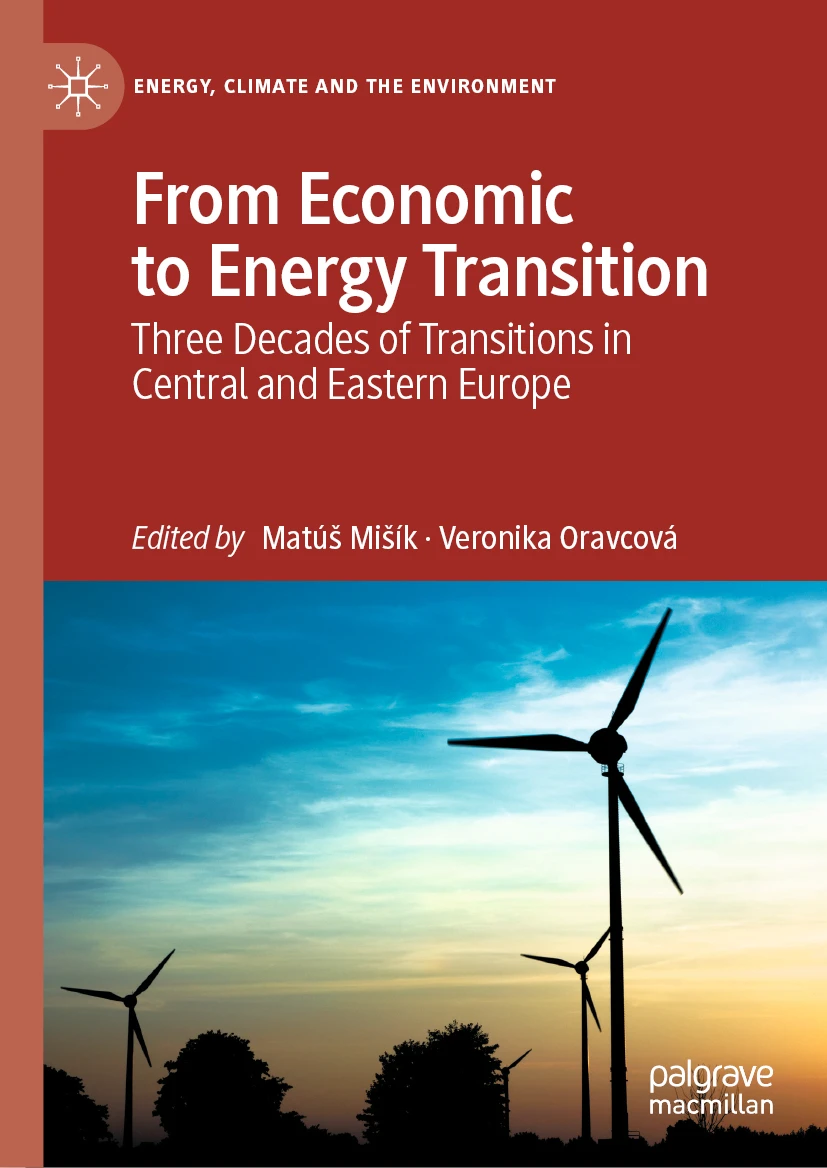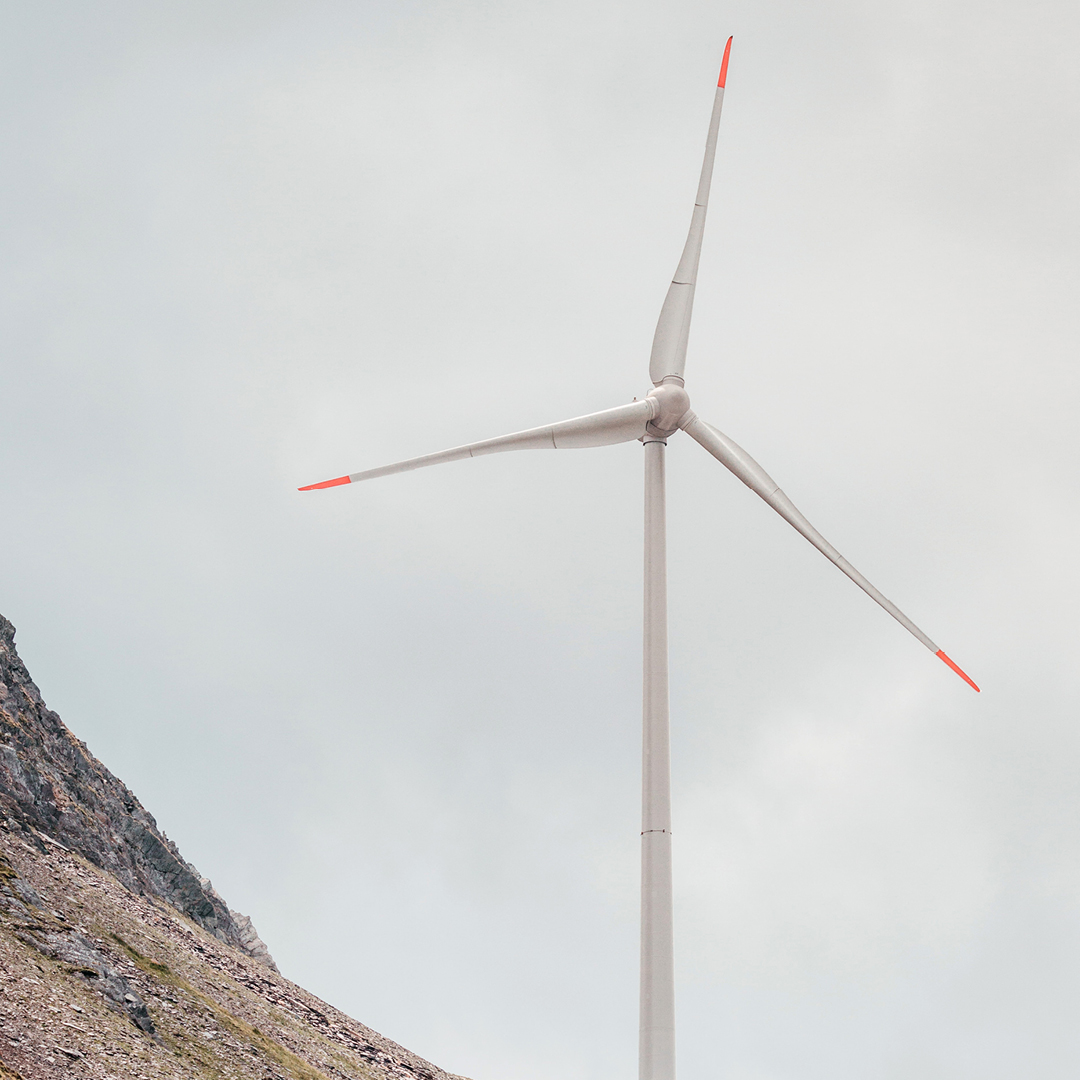Listening to Central and Eastern Europe on low-carbon energy transition

Published by: Palgrave Macmillan

The book From Economic to Energy Transition takes us on the journey of the political, economic, and societal integration of Central and Eastern Europe in the European Union centered around the ultimate goal of low-carbon energy transition. The chapters cover the stories of various countries, bringing fresh insights into the process of energy integration beyond the usual geopolitical and economic narratives, and highlighting the role of civil society. We learn about the rocky path to integration filled with internal resistance, but also seen as an opportunity for putting their own stamp of approval on the energy transformation process.
I would like to point out two key takeaways. First, the book does not only explore the nuances of transition paths within the region but shows that the region as a whole is not to be placed in the black-and-white dichotomy of a pro-Russian vs. pro-European future. The complexity of the countries’ integration paths does not make the region fit into one category of an energy integration storyline. Across several chapters, arguments are brought forward that question whether the energy transition is imposed externally, thus justifying the opposition to the process. Furthermore, the chapter “Tunnel with No Light: Entrapment and ‘Exit’ of V4 Countries’ Energy Transition” suggests that the region is entrapped in the energy transition due to its material unpreparedness. The region is a complex living organism of various influences, and national circumstances, despite sharing the same path-dependencies of the post-socialistic past. Similarly, George Jiglau, Anca Sinea, Ute Dubois and Philipp Biermann in their recent volume on energy poverty in post-communist Europe bring attention to the distinctive challenges the countries have been facing, and show that energy poverty takes a different form in different post-socialist countries.[1] We can observe that the region as a whole, but individual countries and their constituencies as well, should be acknowledged as co-creative parties to the energy transition.
“The current energy crisis, exacerbated by the war in Ukraine, has shown that the low-carbon transition needs to be accelerated and not put on hold.”
Second, the legacy of the post-socialist past can place the countries way behind the starting line on the path toward the energy transition. However, there is much to be learned from their experiences. The post-socialist legacy is not inherently disadvantaging in every aspect. For instance, while poverty rates are higher in the region, there is a greater gender and educational equity among the population in Bulgaria, as we learn from Mariëlle Feenstra’s chapter entitled “Women as Change Agents of the Bulgarian Energy Transition”. Moreover, from the chapters that discuss Lithuania, we learn about its extraordinary path, which ensured its security of supply through the LNG terminal in Klaipeda. This project boosted the energy market in the Baltic region. In other contributions, Lithuania’s bold project of energy independence is applauded for prioritizing the long-term benefits of economic independence from Russia.[2]Furthermore, the voice of citizens and the mobilization of civil society are considered important factors in the energy transition. We learn that the enthusiasm of citizens about the energy transition is informed by their material status, which should not be sidelined as irrelevant. More recent discussions appeal to a socially just energy transition rather than a simple techno-economic process of replacing fossil fuels with renewable energy.[3] We can argue that we need to acknowledge the specificities of the region for the EU energy transition to succeed.
Although it is difficult to find a weakness in the book, there is a geographical overrepresentation of certain countries, while others are not represented at all. Additionally, although the energy transition has impacted the livelihood of citizens, the social aspects of the transition are not extensively integrated. Despite its socialist past, the social programs in the region are much weaker than in the rest of Europe, which makes it much more vulnerable during the low-carbon energy transition.[4]
The current energy crisis, exacerbated by the war in Ukraine, has shown that the low-carbon transition needs to be accelerated and not put on hold. However, the economic and social implications of increasing energy prices pose a significant challenge. The current energy developments make this book even more valuable. Europe’s stand against energy reliance on Russia is played out massively in the region. The shift in the discourse toward energy scarcity prompted by geopolitical and economic pressures makes the debates covered in the book relevant to academic and policy audiences alike. We understand that Eastern Europe is tough and flexible enough to maneuver its path toward energy security. We also learn that the low-carbon energy transition is a mix of policies and approaches, not set in stone, and is being reinvented as we go along. The most relevant message of this book is that in its progress toward the low-carbon transition the region of Central and Eastern Europe should not be pinned against competing with Western Europe but co-create the process in conformity and unity.
Ana Stojilovska is a Research Fellow at the Centre for Social Sciences, Budapest, and teaches in OSUN’s Refugee Higher Education Access Program. She holds a PhD in Environmental Sciences and Policy (CEU, 2021). Her research interests include an anthropological human-centered approach to studying energy poverty in the context of a socially just energy transition, questions of (in)justice and equity concerning infrastructure, heating, and fuel use, as well as new governance models uncovering systematic drivers of energy vulnerability.
[1] Jiglau, George, Anca Sinea, Ute Dubois, and Philipp Biermann, eds. Perspectives on Energy Poverty in Post-Communist Europe. Routledge Explorations in Energy Studies. London ; New York: Routledge, Taylor & Francis Group, 2021.
[2] LaBelle, Michael C. Energy Cultures: Technology, Justice, and Geopolitics in Eastern Europe. Edward Elgar Publishing, 2020.
[4] Fenger, Menno. “Welfare Regimes in Central and Eastern Europe: Incorporating Post-communist Countries in a Welfare Regime Typology”. Contemporary Issues and Ideas in Social Sciences 3, no. 2 (January 2007): 1–30 and Bouzarovski, Stefan, and Sergio Tirado Herrero. ‘The Energy Divide: Integrating Energy Transitions, Regional Inequalities and Poverty Trends in the European Union’. European Urban and Regional Studies 24, no. 1 (January 2017): 69–86.
